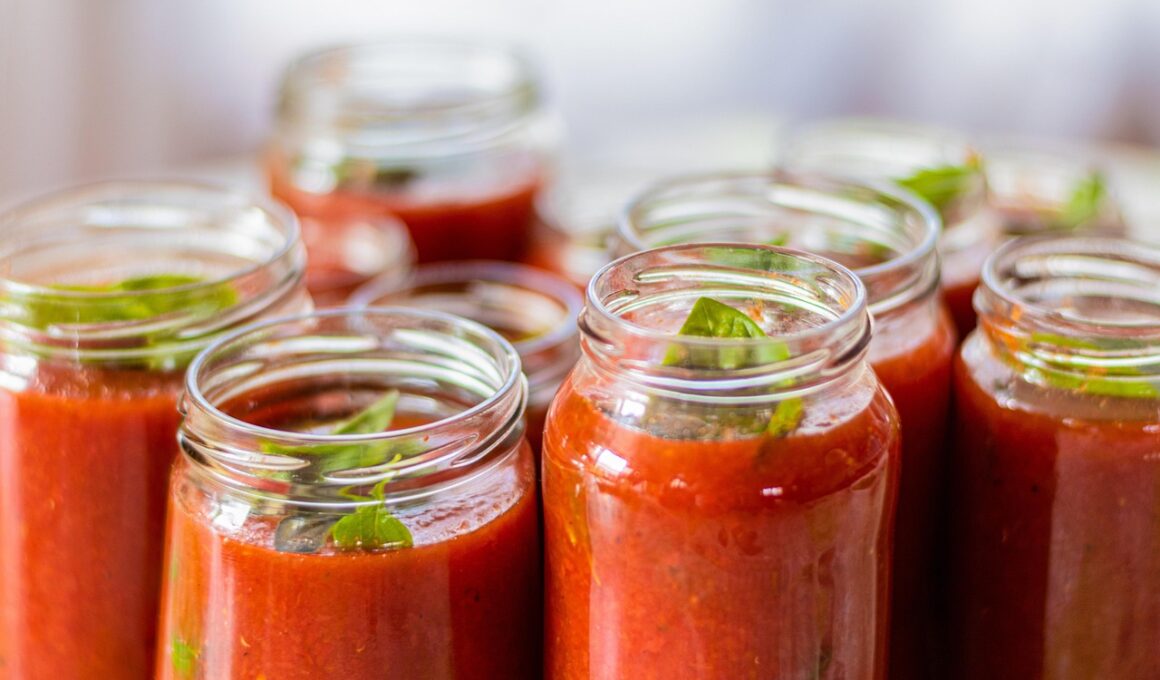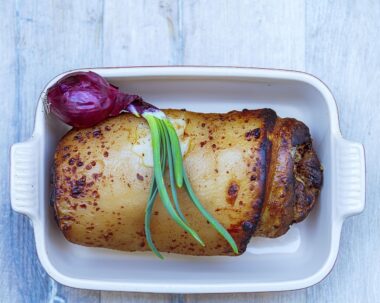Vegetarian Homemade Puppy Food Recipes
When crafting homemade vegetarian puppy food, consider a balance of vegetables, grains, and protein sources. It’s essential to include ingredients like lentils, peas, and other legumes, as these provide crucial amino acids. Incorporating sweet potatoes offers vitamins and fiber. You can also use quinoa as a grain base, which is rich in protein and gluten-free. Always remember to cook the foods thoroughly to aid in digestion for your puppy. Furthermore, you can add some finely chopped carrots or green beans for an extra crunch that your puppy will love. Rotate your recipes to maintain interest in their diet. You might try different seasonings as long as they are safe for dogs, such as cinnamon. The diversity can ensure your puppy receives all necessary nutrients while enjoying their meals. It can be daunting, but making homemade puppy food can genuinely make a difference in your pup’s health and happiness. Keep a close eye on your puppy’s reaction to new foods. Gradual changes will help avoid digestive issues. Always consult your veterinarian if you are unsure about any ingredients.
One favorite recipe for vegetarian puppy food includes a blend of brown rice, peas, and carrots. Start by cooking one cup of brown rice as the base ingredient. Once it’s cooked, combine it with half a cup of peas and half a cup of chopped carrots, steamed until tender. Mix them together well and allow the mixture to cool before serving it to your puppy. This dish is nutritious, as it includes beneficial fiber and essential vitamins. Making meals in batches can be a time-saver, allowing you to store food in the refrigerator. Do remember to maintain proper ratios of ingredients because a balanced mix is crucial for your puppy’s growth and energy. You can also enhance the dish by adding a small amount of olive oil for healthy fats. Ensure the oil is thoroughly mixed throughout the meal. Always check with your veterinarian to confirm that all ingredients are suitable for your puppy. Homemade recipes can be tailored based on allergy concerns or personal preferences. Regular adjustments and monitoring your pup’s health can guide you through preparing the best meals.
A second popular vegetarian puppy food recipe features sweet potatoes, spinach, and chickpeas. Start by boiling a sweet potato until soft, then mash it to create a smooth base. Chop fresh spinach finely and cook it lightly until wilted. Combine this with a cup of mashed sweet potato and a half cup of canned chickpeas, thoroughly rinsed. The blend provides carbohydrates, vitamins, and fiber. Mix them until they are well integrated, and consider adding water or broth to achieve a desirable consistency. This dish not only delights your puppy’s palate but also packs a nutritious punch. Ensure that all ingredients are blended to avoid choking hazards; small bites are better. Replace spinach with kale for a more nutrient-rich option if your puppy prefers it. Fresh herbs, like parsley, can be sprinkled into the recipe to enhance flavor and provide additional health benefits. Always consult your vet concerning new ingredients as each puppy has specific dietary requirements. A routine of these varied recipes not only stimulates your puppy’s taste buds but also ensures their dietary needs are met every day.
Combining Nutritional Elements
Nutritional balance is critical in vegetarian diets for puppies. Fiber from vegetables, healthy fats, and proteins should comprise their food. Therefore, include a range of veggies, such as zucchini, broccoli, and squash. Each offers unique vitamins vital for your puppy’s growth. Furthermore, consider providing a selection of grains like oats or barley, which can be combined with protein sources like pinto beans. Regularly altering the recipe ensures maximum nutrient absorption and variety in their diet. Research the nutritional needs of puppies thoroughly. Puppies typically require specific amino acids that may be less abundant in vegetarian sources. Therefore, consider adding small amounts of nutritional yeast for flavor and additional B vitamins. Always balance omega fat intake; omega-3 fatty acids are crucial, found in flaxseed oil or chia seeds. Monitor your dog’s response to the new food; energetic and healthy behavior usually signifies appropriate nutrition. Nutrition is key for growth, energy levels, and overall vitality. Discuss each new recipe with a veterinarian to maintain dietary suitability. With gradual changes, your puppy will thrive on your thoughtfully prepared vegetarian meals.
Consulting a veterinarian is vital before changing your puppy’s diet significantly. Their specialized knowledge ensures that you compensate for any deficiencies typical in vegetarian diets for dogs. Puppies have unique growth needs and getting it right is crucial. Some pet owners may be concerned about the protein levels in homemade vegetarian recipes. Incorporating high-protein canines such as tofu can be beneficial. Tofu is equipped with essential amino acids that can help develop muscle mass. Consider softening it with a cooking method, making it easier to digest for your pup. Spices should be limited, with some being potentially harmful to dogs, like garlic and onion. Use carrot or beet pulp as a healthy alternative for flavors instead. Ensure regular monitoring of your puppy’s health, weight, and energy. An adequate protein source will ensure they are thriving. If you notice any potential allergies or adverse reactions, consult your vet immediately. Adapt your recipes based on your puppy’s needs and preferences, celebrating their unique tastes while contributing to their well-being.
Another exceptional vegetarian puppy food recipe involves a medley of quinoa, carrots, and peas. Begin by cooking quinoa, ensuring it’s fluffy and fully cooked. Once ready, gently fold in a cup of finely shredded carrots and a half cup of green peas; they should be tender but firm enough to add texture. This combination offers complex carbohydrates and high-quality protein, essential for your puppy’s development. Always cool the mixture before serving it to ensure comfort during mealtime. Quinoa provides all nine essential amino acids, the cornerstone of a puppy’s well-being. Notably, when preparing ingredients, it’s imperative to keep safety and digestibility in mind. Opt for organic vegetables whenever possible for enhanced nutrition. You can also add small amounts of safe herbs like rosemary or basil for flavor and health benefits. Regularly changing ingredients not only keeps your puppy engaged but also maximizes nutrient intake. Always taste-test new recipes; observe your puppy eagerly enjoying their meals. Insurance comes from being attentive and responsive to your puppy’s reactions, and gradual dietary changes are the safest path to a healthy feeding approach.
Feeding Tips for Vegetarian Puppies
Finally, when transitioning to homemade vegetarian diets for puppies, patience is essential. Gradually introduce changes to avoid an upset stomach. Start by mixing small portions of homemade food into their usual diet. Monitor behavior and digestion closely; this observation is pivotal. If you notice signs of allergies—such as vomiting or diarrhea—revert and consult a veterinarian for further guidance. Hydration is equally important; puppies require access to clean, fresh water at all times. Ensure you’re measuring servings carefully to avoid over- or under-feeding. Nutritional requirements for puppies are significantly different from those of adult dogs, so adherence to feeding guidelines is crucial. Keep meals consistent regarding timings and portion sizes to create a routine, further encouraging healthy habits. Consider using presentation; feeding becomes fun when using colorful vegetables or exciting textures. Acknowledge that each puppy is unique, so fine-tune recipes based on their preferences and health. Regular check-ups will ensure that your puppies’ nutrient levels are meeting growth expectations according to their breed.
In conclusion, preparing vegetarian homemade puppy food recipes requires thoughtfulness and creativity. Understanding the components necessary for balanced nutrition is vital to your puppy’s health and longevity. Regularly changing recipes not only gives variety but also important nutrients specific to growth and energy. Following these tips and ideas, providing a wholesome diet can become a fulfilling adventure. Observing how your puppy enjoys each meal will bring joy and satisfaction, knowing you’re contributing to their well-being. Always stay updated regarding dietary changes through professional guidance. The growing trend towards vegetarianism among pet owners reflects a heightened awareness of health and wellness for pets. However, proper education and willingness to learn are essential for success in transition. Incorporating wholesome vegetables, grains, and plant-based proteins will ensure your puppy stays healthy and happy. Furthermore, keep appropriate portions and tailored ingredients to prevent dietary issues. Your dedication and careful preparation will show both in your puppy’s happiness and vitality. Start experimenting with these recipes today and witness exciting improvements in your puppy’s overall health and energy levels. After all, the happiness of your furry friend is a shared goal. Be proactive! )





